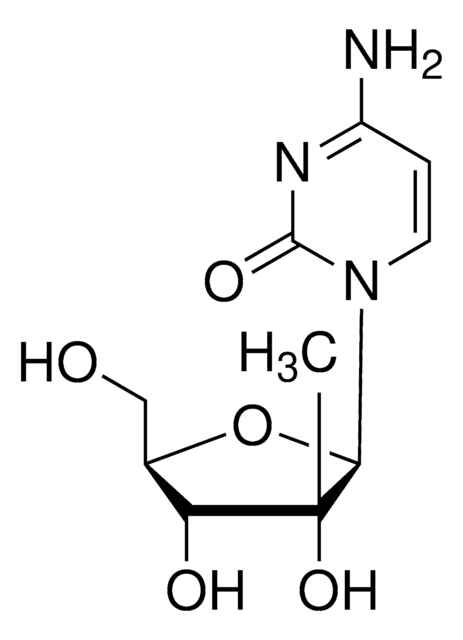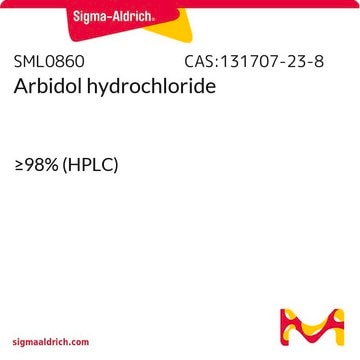G7048
Proguanil hydrochloride
≥95% (HPLC)
Synonym(s):
Chlorguanide, N1-(4-Chlorophenyl)-N5-isopropylbiguanide
About This Item
Recommended Products
Quality Level
Assay
≥95% (HPLC)
form
solid
storage condition
desiccated
solubility
acetonitrile: water: ~1 mg/mL (60/40)
originator
AstraZeneca
storage temp.
2-8°C
SMILES string
Cl.CC(C)NC(=N)NC(=N)Nc1ccc(Cl)cc1
InChI
1S/C11H16ClN5.ClH/c1-7(2)15-10(13)17-11(14)16-9-5-3-8(12)4-6-9;/h3-7H,1-2H3,(H5,13,14,15,16,17);1H
InChI key
SARMGXPVOFNNNG-UHFFFAOYSA-N
Looking for similar products? Visit Product Comparison Guide
Application
Biochem/physiol Actions
Features and Benefits
Signal Word
Danger
Hazard Statements
Precautionary Statements
Hazard Classifications
Acute Tox. 3 Oral
Storage Class Code
6.1C - Combustible acute toxic Cat.3 / toxic compounds or compounds which causing chronic effects
WGK
WGK 3
Flash Point(F)
Not applicable
Flash Point(C)
Not applicable
Certificates of Analysis (COA)
Search for Certificates of Analysis (COA) by entering the products Lot/Batch Number. Lot and Batch Numbers can be found on a product’s label following the words ‘Lot’ or ‘Batch’.
Already Own This Product?
Find documentation for the products that you have recently purchased in the Document Library.
Customers Also Viewed
Our team of scientists has experience in all areas of research including Life Science, Material Science, Chemical Synthesis, Chromatography, Analytical and many others.
Contact Technical Service















